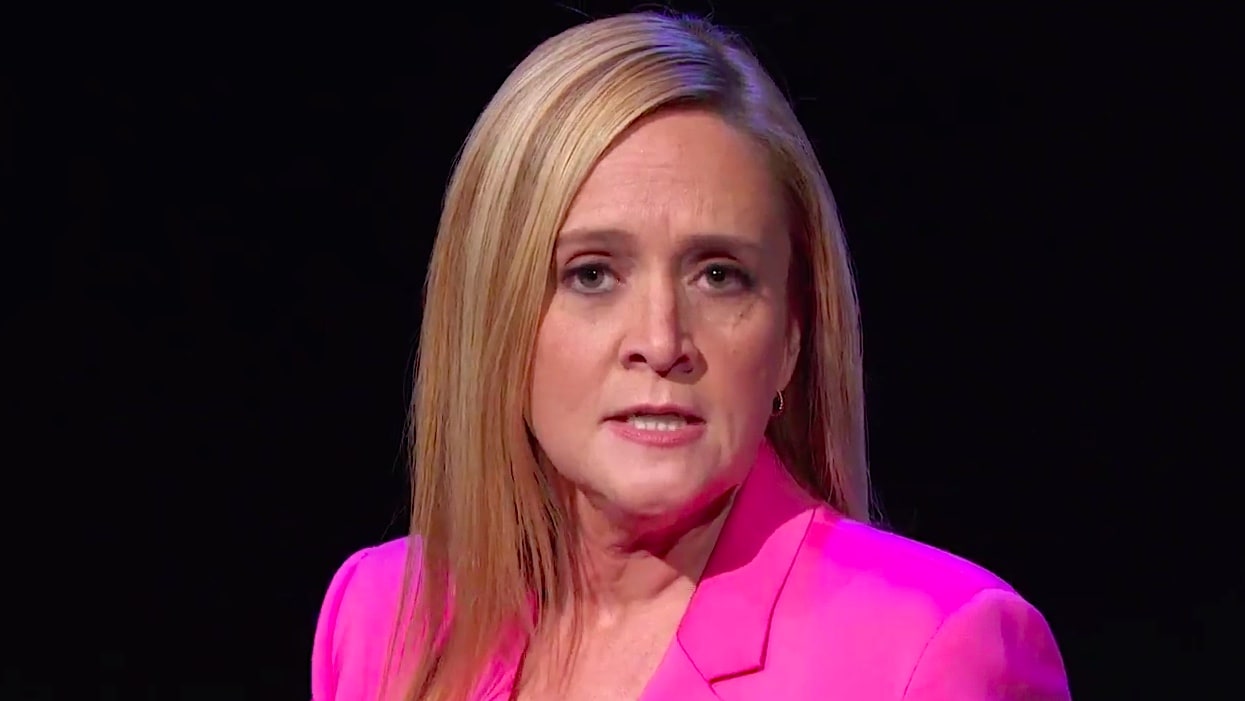
Hmmm, this is a family column, so I'm not going to use that word. Let's just say it's a four-letter epithet for the nether lady parts, the last three letters of which are U, N and T. But in deference to the families that read this paper - including mine - we're going to use something nicer. We're going to say . . . er . . . rhyming's so cliche . . . oh, heck, let's just go with "twinkletoes."
As you may be aware, a few days ago, television host Samantha Bee called Ivanka Trump a "feckless twinkletoes" on national television. This remark was provoked by Ms. Trump's absolutely stunning gall in posting a photograph of herself to Instagram, holding her young son. And just like that, it was time for another National Conversation.
Conservatives said that if Roseanne Barr got fired, then Bee had to go, too. Liberals' retort was . . . well, what, exactly? It wasn't clear, except that a woman using the coarsest sort of misogynistic vulgarism still wasn't as bad as a white woman making monkey jokes about a black woman, or the past three years of Donald Trump taking over national politics.
Which is true.
In-groups using words to each other isn't the same as out-groups using those same words. Trump is the president of the United States, which carries a higher responsibility to the nation, and common decency, than hosting a third-rate comedy show.
And if you want to take this opportunity to point out the jaw-slackening hypocrisy of conservatives becoming outraged about this after defending Barr, or Trump . . . well, just hold on while I find you a comfy chair and some Gatorade.
But after you've said all that, what you're left with is a burning question: So what? Is the behavior of a senile vulgarian with a terminal case of verbal dysentery now the standard to which feminism aspires? That seems rather inadequate. Or have feminists now lost the ability to distinguish between slurs that were reclaimed by the oppressed as terms of affection and one that is hurled as a vile insult into millions of American homes?
It seems that we all ought to understand that insults that are directed only toward women must be sexist when they're used as an insult. And that when you are using the fundamentals of our anatomy as a put-down, then it is really quite sexist, and therefore off-limits to anyone who claims to be interested in a more gender-equal society.
You can try to talk around this central fact. You can layer on the context and nuance and conclude, as Rebecca Traister does, that "words matter, and sometimes only the strongest ones will do the job." This sounds very fine, when you put it like that. And like many fine-sounding phrases, it starts to crumble under closer examination.
Was "Twinkletoes" really the only word available to suggest that Ivanka Trump should talk to her father about the cruelty of immigration policies? After 30 seconds of thought, one starts to muse upon another very strong word, one that vividly describes a certain kind of pungent natural fertilizer. The English language has tens of thousands of other words she could have chosen. And precisely because words do matter, it's hard to use this one and then still call yourself any sort of principled feminist.
Nor can you stand by while others use it, and say "Whatabout Trump?" In the late 1990s, when the Monica Lewinsky story broke, feminists faced an unpleasant political choice. They could stand up for the principle they had spent quite a bit of time establishing: that it wasn't OK for older, more powerful men to hit on their young subordinates. Or they could stand up for Bill Clinton. Some of the movement's most venerable leaders chose to issue groveling excuses for the inexcusable, culminating in Gloria Steinem's incredible idea of "one free grope."
Twenty years later, when #MeToo happened, feminists started eyeing that moment uneasily. And with Hillary Clinton safely out of running for any office and with the political ramifications dwindling to "awkward at fundraiser,s" they decided that now it was maybe finally time to mention that maybe Bill Clinton's behavior had been appallingly incompatible with the society they wanted to build. They had had a bad moment, they said; they had learned a valuable lesson. They wouldn't let that ever happen again.
Which brings us back to the question that started this column: Under what circumstances may a conservative call Chelsea Clinton a "twinkletoes" on national television? Let's say her mother is speaking about her support for abortion rights; can someone who believes that "abortion rights" is code for "the annual murder of 650,000 babies" call upon that "feckless twinkletoes" to do something about her mother's murder-happy policy program? Does the conservative have to wait until Chelsea Clinton posts a photo of herself and her child to Instagram? Can it be said only if such a photo appears when Democrats are trying to secure more funding for Planned Parenthood?
Counterfactuals are usually tricky, of course. But I have utter confidence in this one: The answer that feminists would give in that case would be "never." And if a network had aired such a remark, those same people would be rightfully raising holy hell about it. They would not be looking around to see whether someone, somewhere, had sometime in the recent past made a remark that was even worse.
That's not principle; that's tribalism. Manners for thee, slurs for me - as long as they're aimed at you. This is obviously not going to work in a society as divided as ours.
So feminists, and the left more broadly, now have a chance to prove that they really have learned a lesson from the Bill Clinton debacle. They have a chance to stand as forthrightly and rightly against an offense committed by one of their own as they do against attacks on them. Or they can slink away, muttering about Trump and the patriarchy, and wait for the next generation of feminists to get old enough, and mad enough, to repair the damage they've done.
Megan McArdle is a Washington Post columnist who writes on economics, business and public policy. She is the author of "The Up Side of Down." McArdle previously wrote for Newsweek-the Daily Beast, Bloomberg View,the Atlantic and the Economist.


 Contact The Editor
Contact The Editor
 Articles By This Author
Articles By This Author